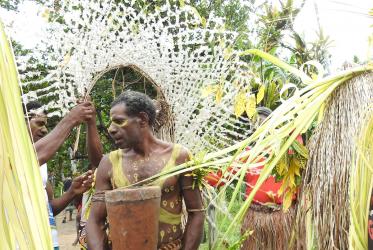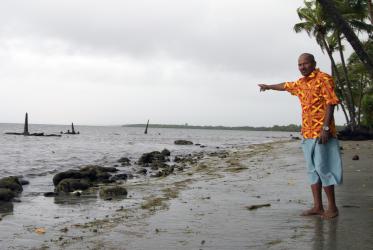Displaying 1 - 20 of 38
The cry of the Papuans in Indonesia
14 November 2019
WCC organises event on “The Human Rights Situation in the Philippines”
18 September 2019
“Economy of life” lifted up at special school in Indonesia
22 August 2019
WCC condemns massacre of farmers in Philippines
12 April 2019
Church in Bali empowers youth to break cycle of poverty
18 March 2019







